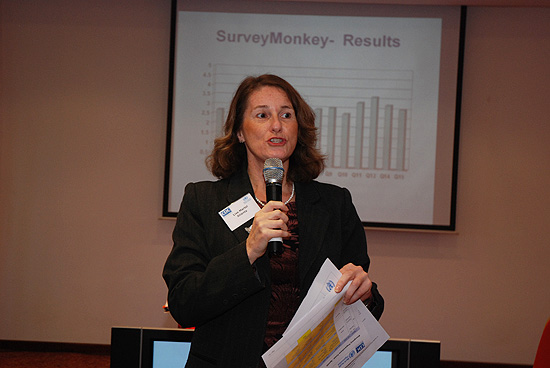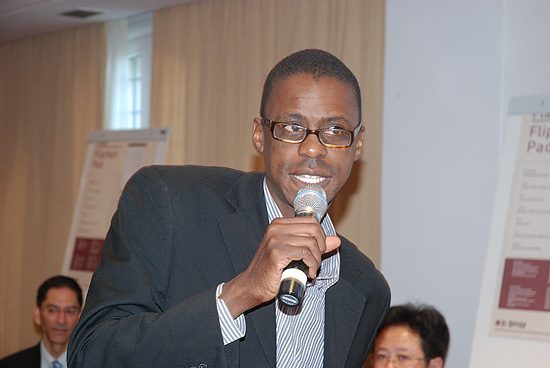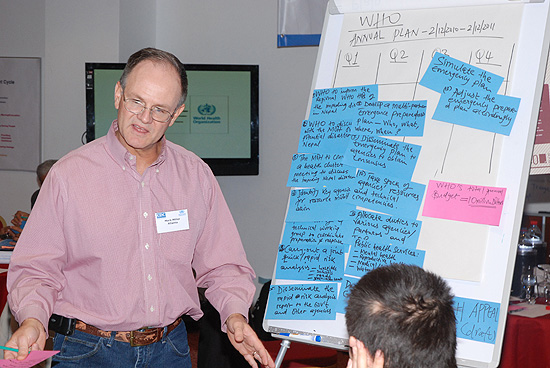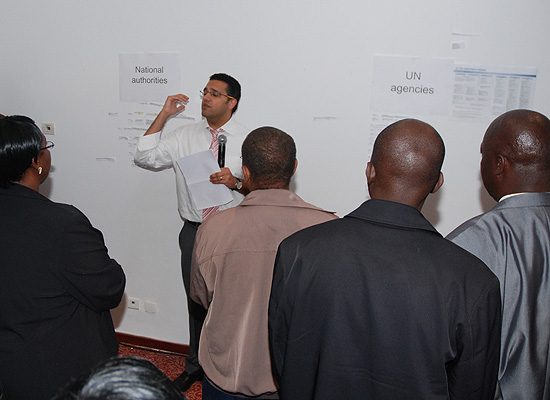CDC Collaboration Goes International

Lise Martel (International Emergency Preparedness Team lead, CDC Atlanta) speaking at emergency response training in Tunisia
Dr. Lise Martel is the International Emergency Preparedness Team (IEPT) lead at the International Emergency and Refugee Health Branch in CDC’s Center for Global Health. She coordinates emergency preparedness for CDC facilities and staff in China, Kenya, Guatemala, Thailand, and Kazakhstan. Her team supports the development of emergency preparedness and response programs for CDC partners, such as national ministries of health. IEPT members prepare emergency plans and hold exercises in countries around the world. In addition, Dr. Martel and her team respond to international disasters like the earthquake in Haiti and flooding in Pakistan.
In the spring of 2010, Dr. Martel attended the Environmental Health Training in Emergency Response (EHTER) course at CDC and recognized its value for environmental health training outside the United States. “I thought that the information EHTER provides, particularly the training in water safety and sanitation, should be shared with international partners. The concepts are universal. By changing examples, using different photos, and making modifications, the training can be used anywhere,” she said.

Daniel Wako (Emergency Response Coordinator, CDC Kenya) at training in Tunisia
Based on her experience with the EHTER course, Dr. Martel led her team in planning an International Emergency Preparedness forum in Tunisia for 50 representatives from ministries of health, the World Health Organization, and public health partners from 17 countries. The December 2010 forum included a section specifically dedicated to environmental health.

CAPT Mark Miller working with group at emergency response training in Tunisia
Dr. Martel is a strong advocate for more collaboration among CDC’s diverse centers. “The training in Tunisia was a perfect example of a strong and successful inter-center collaboration,” she says. For the forum, Dr. Martel called upon experts from the CDC centers that focus on environmental health, global health, and emergency operations. One of EHTER’s team leads, CAPT Mark Miller, spoke about the universal concepts of environmental health in disaster settings. Although he did not teach the EHTER course itself, his presentation included content derived from the training modules.

Altaf Sadrudin Musani, World Health Organization, working with group at training in Tunisia
As a result of the forum, CAPT Miller learned ways environmental practitioners solve similar problems in other parts of the world. For example, because water systems in Africa are not much different from systems in the rural U.S, he can now share African solutions to water issues with environmental health practitioners in this country.
Now that parts of the EHTER course have been presented internationally, Miller and Martin Kalis, EHTER team lead, are in talks with other countries about presenting the training to their environmental health emergency responders.